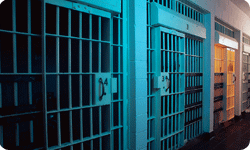Attack on free speech: Harry Nicolaides' case
 Joshua Bernshaw
Joshua Bernshaw
In Franz Kafka’s The Trial, Josef K wakes one morning to find he has been arrested for a mysterious and unidentified offence. I have always imagined Josef K might have thought himself to be dreaming; that somehow what was happening to him, his conversations with interrogators, his trial and ordeal, was just the manifestation of a fevered mind.
Surely this is what Harry Nicolaides, an Australian citizen and resident of Melbourne, must have been thinking when he was arrested on 31 August 2008 by Thai police at the Bangkok airport. Debate on how Nicolaides came to find himself in this situation is polarised. Some have accused him of naivety and deliberately baiting the Thai authorities. Others, perhaps prudently, have highlighted the steps Nicolaides took to ensure the contents of his novel were appropriate: sending his book to the National Library, the Thai Ministry of Culture, the Thai Ministry of Foreign Affairs, and the Bureau of the Royal Household, all without response. In the final analysis, Nicolaides’ motives are unimportant, because what is highlighted by this turn of events is the apparently shameless attack on Nicolaides’ fundamental human right to free speech.
At the time of his arrest, Mr Nicolaides was waiting to board a plane to Melbourne when he was detained and charged for offences against the lèse-majesté provision of the Thai Criminal Code, making illegal any insulting or disrespectful words or actions directed against the Thai royal family. The offence carries a penalty of up to 15 years’ imprisonment. The reason Nicolaides was arrested and charged was that his self-published book, Verisimilitude, released in 2005, allegedly contained several sentences concerning the rumoured romantic life of an undisclosed Thai royal.
There are many factors which make the reason for Mr Nicolaides’ arrest puzzling, among them that Verisimilitude was published three years earlier, that only seven copies out of 50 printed were sold, and that despite a warrant for his arrest having been issued in March 2008, Nicolaides had left and entered Thailand on roughly five occasions between March and August 2008. For this alleged offence, Mr Nicolaides was refused bail on a number of occasions and remanded in custody.
Nicolaides awaited his hearing, imprisoned for approximately five-and-a-half months, at the Bangkok Remand Prison. On 19 January 2009, Mr Nicolaides received a three-year jail sentence for several fictitious lines in a novel. His comments to media, from behind the bars of his cell, were that he felt he was having a bad dream from which he could not awake.
In early February 2009, Liberty Victoria wrote to the Hon. Prime Minister Kevin Rudd and the Hon. Foreign Minister Stephen Smith, urging that diplomatic measures be taken to secure Mr Nicolaides’ release from custody. On 21 February 2009, Liberty welcomed the news of Nicolaides’ pardon and return home to Australia.
From the comfort of our living rooms, the issue of human rights can often seem, to some of us, a remote notion with little relevance to our day-to-day lives. Yet tragedies like Mr Nicolaides’ offer a sobering reminder of the things we cannot take for granted. Our desires to be treated with dignity and to have our rights acknowledged and respected are not immutable. Without a national legislative framework which enforces the basic minimum human rights to be afforded to all Australians, at home or abroad, our rights cannot and will not exist as independent sentinels to safeguard us.
How we discuss our conceptions of rights and justice as a community is not a pointless exercise. It serves to empower individuals and communities to influence and inform public policy and government decision making. Under the current federal government, Australians are being given an opportunity to take part in a consultation process around the development of a national human rights instrument; let’s not let it pass us by. It is vital that Liberty members and others interested in this process take part and contribute their views on the sorts of human rights which should be protected and promoted by our government now and into the future.
Joshua Bernshaw is a Liberty member.
